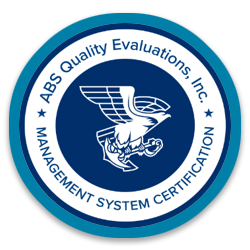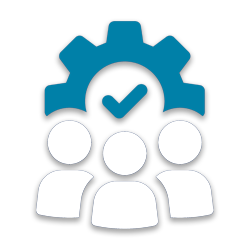SA8000 Overview

Discover how following the SA8000 standard can help show your commitment to fair treatment, human values, and rights in the workplace.
What is the SA8000 Social Accountability Management Standard?
The SA8000:2014 (SA8000) allows companies to demonstrate their dedication to fair treatment of workers and helps secure ethical working conditions worldwide. The standard focuses on the protection of human rights, health and safety, remuneration, working hours, freedom of association and provision of child labor or forced or compulsory labor.
Benefits of SA8000 Standard
SA8000 drives positive change in businesses and industries alike, helping manufacturers improve their reputation while serving employees and customers better. By generating credibility and trust, SA8000 benefits employees, suppliers and subcontractors through:
- Providing healthy working conditions
- Providing a living wage
- Increasing awareness of rights through employee training
- Increasing opportunities to organize channels of communication
- Improving relationships between management with shared decision making
- Improving relationships between workers, customers and stakeholders
- Improving quality, productivity, hazard and risk detection, supply chain control, employee retention and reputation
SA8000 Webinar
SA8000 Certification in a World of Due Diligence
Created by Social Accountability International (SAI), the SA8000 Standard provides an industry-wide framework for conducting business to the highest Social Accountability and Corporate Social Responsibility standards.

FAQs
Who should follow the SA8000 standard?
The SA8000 standard should be followed by organizations of any size, industry, or location that are committed to ensuring ethical working conditions, protecting workers' rights, and promoting social accountability throughout their operations and supply chains. It is particularly relevant for businesses aiming to demonstrate their commitment to corporate social responsibility (CSR) and ethical labor practices.
Who should follow the SA8000 standard?
What are the key requirements of SA8000?
The key requirements of SA8000 focus on promoting ethical labor practices and include:
- Child Labor: Prohibiting the use of child labor and ensuring proper remediation if it occurs.
- Forced or Compulsory Labor: Eliminating all forms of forced or involuntary labor.
- Health and Safety: Providing a safe and healthy working environment for employees.
- Freedom of Association and Right to Collective Bargaining: Respecting workers' rights to form and join trade unions and bargain collectively.
- Discrimination: Preventing discrimination in hiring, compensation, access to training, promotion, and termination.
- Disciplinary Practices: Prohibiting harsh or inhumane treatment, including physical punishment or verbal abuse.
- Working Hours: Complying with applicable laws and industry standards on working hours.
- Remuneration: Ensuring fair wages that meet legal and industry minimums.
- Management Systems: Implementing policies and procedures to ensure compliance with the standard and continual improvement.
What are the key requirements of SA8000?
Where can I get help with SA8000 certification?
Organizations must undergo an audit by an accredited certification body to verify compliance with the standard. ABS QE has extensive experience combined with a robust portfolio of services to help guide organizations on their social accountability certification journey.
Where can I get help with SA8000 certification?

